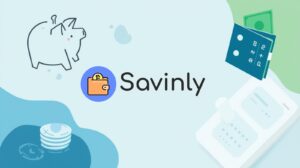Crack the Code
Most people don’t realize that you can save this much on rent, groceries, and…well, all of life’s little money-suckers, even if your credit score makes you break out in hives. Let’s be honest—how many times have you scrolled houses for sale, sighed, and whispered… “Yeah, right, maybe in five years”? That was me not so long ago, drowning in student loans, credit card mistakes, and “just one more” streaming subscription.
But here’s the thing I wish someone had told me (preferably with coffee in hand): you can absolutely save money for a house fast—even with bad credit—if you get a little creative and, yeah, sometimes a bit ruthless with your spending. Grab a notepad (or your phone), let’s chat about what really works.
Wait… Is This Even Doable?
Look, I get it. You see “bad credit,” and the world seems to whisper not for you. Homeownership feels reserved for the coupon queens and six-figure savers, right? Here’s my first and most important truth bomb: bad credit is a speed bump, not a wall.
Have you actually looked at your credit score, though? Like, actually peeked? (It’s easy to avoid… but take a deep breath and pull it up. I’ll wait.) The game changes when you know your number:
| Score Range | What It Means | Down Payment Needed* |
|---|---|---|
| Below 580 | Poor—Options limited, higher rates | 10% or more |
| 580–669 | Fair—Government-backed loans possible | 3.5% (FHA) & up |
| 670+ | Good—Most loan types open up | 3%–5% |
*For example only, varies based on lender and location.
Half my friends, honestly, didn’t know the difference between a FICO score and a Frito… until real estate dreams popped up. So, if you’re somewhere in the “I think I have bad credit, but it might not be THAT bad” zone, don’t count yourself out.
Oh, and there are even programs—like the HCV/Voucher program—that don’t get hung up on your credit score at all. You can read up on it in this guide on buying a house with bad credit.
Kill the Hidden Money Leaks
Where Does Your Money Even Go?
Here’s where the magic starts, but you gotta get real. Track—without judgment—every dollar. Not forever. Just one month. You might find you’re spending more on midday lattes than you thought. (Swapping my $6-a-day habit for a thermos and instant coffee saved me $152 per month. Yes, I counted. Yes, I counted every single cent.)
Spotting the leaks gives you power, not shame. And if you need a local edge—like tricks on cheap eats or creative housing near the heart of things—peek at how to save money for a house fast near district 7 for inspiration.
Slash, Swap, and Substitute
Grocery bill out of control? Try this: for two weeks, skip brand names—go all-in on store brands and compare your receipts. That’s the frugal version of extreme couponing, and it adds up faster than you’d believe.
And seriously, energy hogging is a budget vampire. I switched out half my old bulbs for LEDs. My bill dropped by $20. That’s a pizza and a little extra for savings—every single month.
Budget Like a Human
Yeah, Budgets Aren’t Fun (But They Work)
Confession time? I loathe spreadsheets. (But… tracking made me realize I was leaking $180/month between Uber Eats and mindless clicks.) If numbers make you cringe, try the “anti-budget”—pay yourself first (put money in your house fund the second you get paid), and let whatever’s left be your fun/play/freedom money.
Peek at This Simple Budget
| Category | % of Income |
|---|---|
| Essentials (rent, bills, groceries) | 50% |
| Savings (house fund!) | 20-30% |
| Debt Payments | 15% |
| Fun/Misc | 5-15% |
It doesn’t have to feel restrictive. Just “pay future you” first, then let yourself live a little. (Trust me, future you is hilarious and grateful.)
If your situation feels especially tight (been there), you might want to check out How to save money for a house on a low income for strategies that work even when every dollar counts.
Debt Is the Real House-Stealer
Debt… it’s That Annoying Roommate
Want a cold, hard truth? Every $100 you’re funneling to high-interest debt each month could be padding your house fund, or—better—shrinking that future mortgage payment. Debt eats your progress like termites in a wooden porch.
Have you ever noticed how those credit card minimums just never seem to end? Dave Ramsey fans swear by the debt snowball (pay off your smallest debt first for feel-good momentum). Others—like spreadsheet types—love the avalanche method (pay off the priciest interest first). I say: do what keeps you motivated. My friend Sarah paid off her two smallest cards in six months, then tossed that $120 payment into house savings. By the time she closed, she had both less debt and a bigger down payment.
Lenders aren’t just staring at your credit—they want to see your “debt-to-income ratio” (that’s basically your bills compared to your paychecks). Under 45% DTI is golden, but every bit you chip off helps.
Boost Your Income Sideways
The Extra $200/month You Didn’t Know You Had
Saving money for a house when credit isn’t on your side? Sometimes you have to play offense, not just defense. Side hustles are the unsung hero for bad-credit dreamers—you don’t need to DoorDash every night.
What do you love, and can people pay for it? Seriously, anything counts. Babysitting, pet-sitting, tutoring, selling crafts, gig apps, mowing lawns. There was one winter when I was shoveling driveways and listing stuff on Facebook Marketplace. (Tiring? Yes. Worth it? Oh yes. $400/month extra went straight to my house account.)
Think outside the box. And if you want to get nerdy with your numbers (it’s actually fun, I swear), plug your income and expenses into the How to save money for a house fast calculator just for kicks. Sometimes seeing the months until you hit your goal is the motivator you need.
Bad Credit Doesn’t Have to Follow You Forever
Quick Wins for Your Score
You don’t have to wait years to improve your score—just a few months of smart moves can tip you into the next bracket, which opens up cheaper loans and bigger choices. Here’s what actually helps:
- Pay off/down credit cards—especially balances near their limit
- Always, always pay at least the minimum… on time
- Dispute anything weird or wrong on your credit report (it’s easier than you’d think—I’ve done it and it actually worked)
- Try a secured credit card to build up good history (with no surprise bills)
- Keep old accounts open, even if they’re unused
If you’ve got a year to plan—that’s gold. Mix your types of credit (like a small personal loan and a card), or try being an authorized user on a responsible family member’s card—a sneaky credit-boosting trick.
And if you’re really struggling to break through, look into getting a co-signer. Just remember…it keeps you both on the hook, emotionally and financially (see friendly loan explanations here). So keep it drama-free (and maybe buy your co-signer a pizza when you’re finally in that new place).
Down Payment: Your Secret Weapon
Even Small Extras Count
Not everyone knows this, but saving more for your down payment—even if it’s just an extra 2%—can tip the lender scales in your favor, especially with credit on the low end. A bigger upfront payment = smaller loan = smaller risk for the bank. And less risk? That means better odds and rates for you. Even an extra thousand or two shaved a year off my mortgage payments down the line.
If you’re looking for creative ways to up your down payment in specific areas, check this clever local guide: how to save money for a house fast near ho chi minh city.
Low Income? You’re Still in the Game
Programs Make a Difference
Maybe your paycheck is stretched…or you just started working again after a break. You’re not shut out! FHA and VA loans accept scores as low as 500–580, sometimes even with a super-low or zero down payment if you fit the criteria (dig into the options here).
I know someone who used a Housing Choice Voucher (yep, Section 8, but for buying instead of renting) after some brutal months. Check with your local housing authority—these programs really do exist, and they aren’t just for the lucky few.
For different income levels and life circumstances, there’s something out there. The resources in How to save money for a house on a low income opened my eyes to all the loopholes and bonuses I would’ve missed on my own.
Final Pep Talk
If you made it this far, you’re already ahead—seriously. Most people never even look up how to save money for a house fast with bad credit. They settle. They wish.
But not you. You’re tracking your spending, squashing money leaks, and ditching mini luxuries for a bigger prize. You’re facing the debt monster (with or without spreadsheets). You’re building a new credit story and—you know what?—that side hustle is going to help. Whether you’re in bustling cities or quieter spots, you’re learning, saving, and rising.
Next step: pick one thing from today and do it this week. Cancel a subscription. Move $40 to savings. Check your credit. Every small action moves you closer. And if you’re ever stuck, re-read, revisit how to save money for a house fast near district 7 or how to save money for a house fast near ho chi minh city for a burst of new ideas.
Here’s my wish for you: let this process be messy, personal, and real. You don’t need to be perfect. You just need to stay in the game. Your future house (paint colors, knickknacks, and all) is waiting for you. Go get it, one smart (sometimes stubborn) step at a time. You got this.













